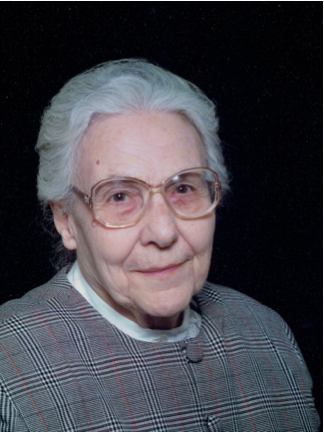In the Words of Mitzi Daffron, Daughter and Granddaughter
A summer day in 1980 started off like any other day when my grandmother was visiting. Mom and Dad went to work and Grandma took me to the dentist office—not unfamiliar territory.
After my dentist appointment, as my grandmother was driving, I noticed that I wasn’t familiar with the route she was taking. I asked her if we were going somewhere else, and she sheepishly noted that she had “taken a wrong turn.”

Mary Dougherty
Initially, we didn’t think a lot about it, but we began noticing more of a pattern. Eventually, for safety reasons, we had to transfer her to a nursing home, as she could not safely live on her own any longer.
While in the nursing home, I noticed several stages to her Alzheimer’s progression, which was not definitively diagnosed at that time, but was noted as a high probability by her physicians. Some of the initial stages were the hardest, as she knew that she was struggling and became very frustrated with herself. She progressed to a phase of not knowing what some very basic things were, such as eating utensils.
Looking back, we should have recognized symptoms sooner, as my great grandmother, great-great grandmother and women going back multiple generations had these same symptoms, back then they called it “hardening of the arteries.”
My grandmother was started on medication, but the disease was too far along for it to help her. My mother started on medication in 1998 at the first sign of any memory issues and is still active and with full mental capacity today.
I would encourage those who are recognizing any symptoms of confusion and memory loss in a loved one (or yourself) to see a physician – early treatment can definitely help maintain a healthy memory.
Takeaways:
- Learn to recognize the symptoms of Alzheimer’s
- Seek treatment as early as possible.
- Learn your family history to prepare yourself and your family for health issues that may arise.
atom Alliance is collecting and sharing these stories in honor of National Alzheimer’s Disease Awareness Month. See what else we’re doing to help improve the quality of care for older adults at www.atomAlliance.org.
We invite you to:
Share your story.




